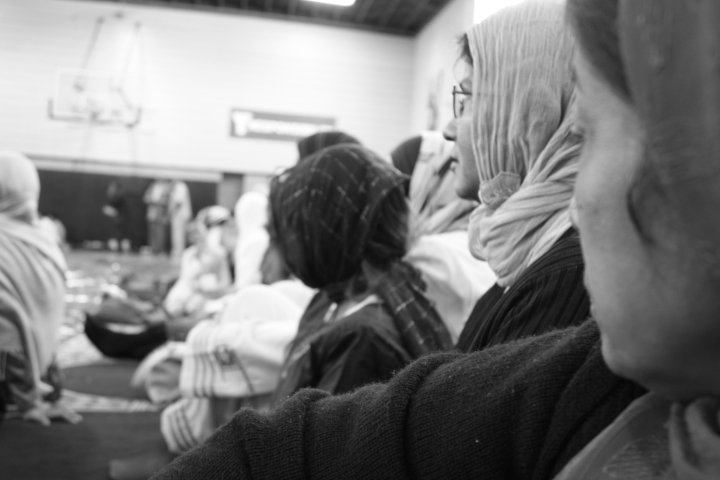
I've been interested in learning more about the Karen people from Burma ever since my adopted parents, Michael Shafer and Evelind Schecter, established a nonprofit called Warm Heart Worldwide ( http://www.warmheartworldwide.org/ ) that works primarily with Karen people in Northern Thailand. The Karen (pronounced kah-REN) are a minority group that has faced and continues to face intense political oppression from the Burmese military government, causing many of them to escape to the Thai/Burma border as refugees. The border has thousands of Karen who populate several different camps along the border.
 |
| Listening to a church sermon in Karen |
Bebe is a young Karen woman whom I met in Oakland. After we met, she invited me to her church to learn more about the Karen community here. As Bebe took me through the halls of the church and introduced me to her family, I was a bit overwhelmed by how warm and open the people were around me. More than anything, however, I was interested in hearing Bebe's story. I finally got the chance during lunch, where I had awesome Burmese and Thai food (for me one of the best parts of intercultural connecting is definitely the food!).
 Bebe talking to her mother and grandmother Bebe talking to her mother and grandmother |
| |
Bebe began by telling me about how her father first came to Thailand from Burma by accident. At sixteen years old, he and some friends crossed the border, then were not allowed back in. He left his old life behind without his family having any clue about his whereabouts. Later, he and Bebe's mother met at the Thai/Burma border and Bebe was subsequently born in the Mae La refugee camp in Thailand. The Mae La camp was set up by the United Nations and is the largest refugee camp in Thailand, with over 45,000 Burmese refugees. Bebe explained how in the camp, families received food every fifteen days, and would get donated clothes, mostly from Japan.
 Karen girls waiting to go into church Karen girls waiting to go into church |
When it came to housing, Bebe recalled how, unlike America where “you can live forever,” they had to build a house every year because the homes were made out of bamboo that had to be replaced due to damage caused by heavy rains. Bebe would climb on her house along with her mother to help rebuild.
 Walking down the hall of the Burmese Baptist Church Walking down the hall of the Burmese Baptist Church |
She also explained that the UN didn't provide income for the refugees; they were just given food and a place to live. As a result, her parents worked in the fields to make money. Since there weren't many jobs available outside the camp, people often worked in the fields planting vegetables. Generally though, there weren't really jobs available on the outside, so most young people would work inside the camps after graduating high school.
 Origami crane folded by Bebe Origami crane folded by Bebe |
Bebe said that many young people would also marry early because they don't know what else to do. Bebe did attend school while in the camp; there were about 22 schools in her camp alone. The schools are not connected with the UN, though. Different schools had different sponsors and different connections.
